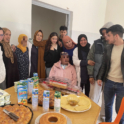Maryame has taken the lessons learned from her exchange year to make a difference in her community.
STORIES
YES Alumni Grant: Agricultural Enterprise for Youth Employment
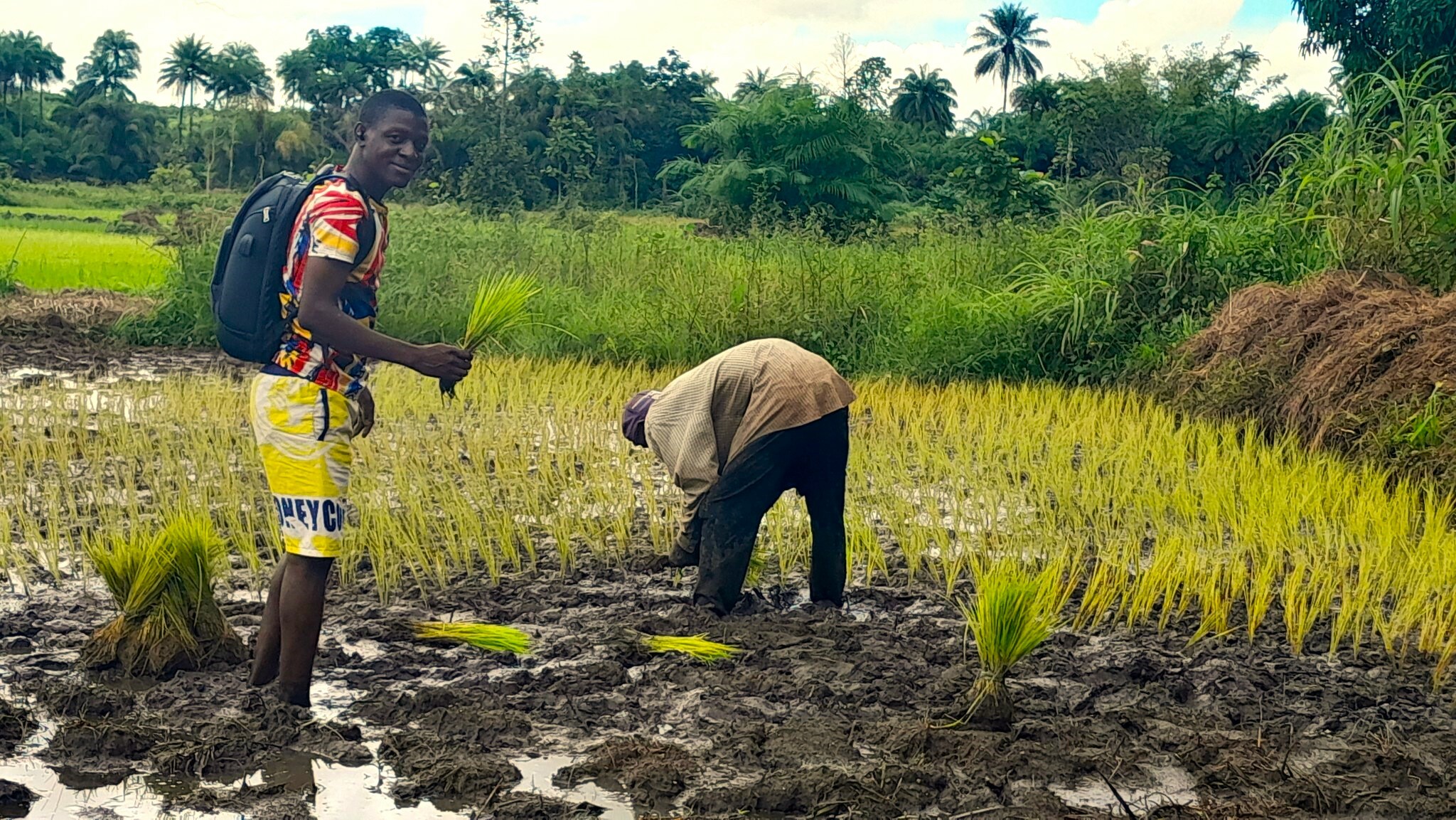
By Emmanuel Salia Gaima (YES 2013-2014, Sierra Leone, placed by CIEE in Leavenworth, WA)
While on the YES program, my host school, Cascade High School, organized a career choice program, called Cascade Learns Live. The program allowed us to participate in a one-day shadowing opportunity at a company chosen for us by the school. Blue Bird, Inc. in Peshastin, was selected for me.
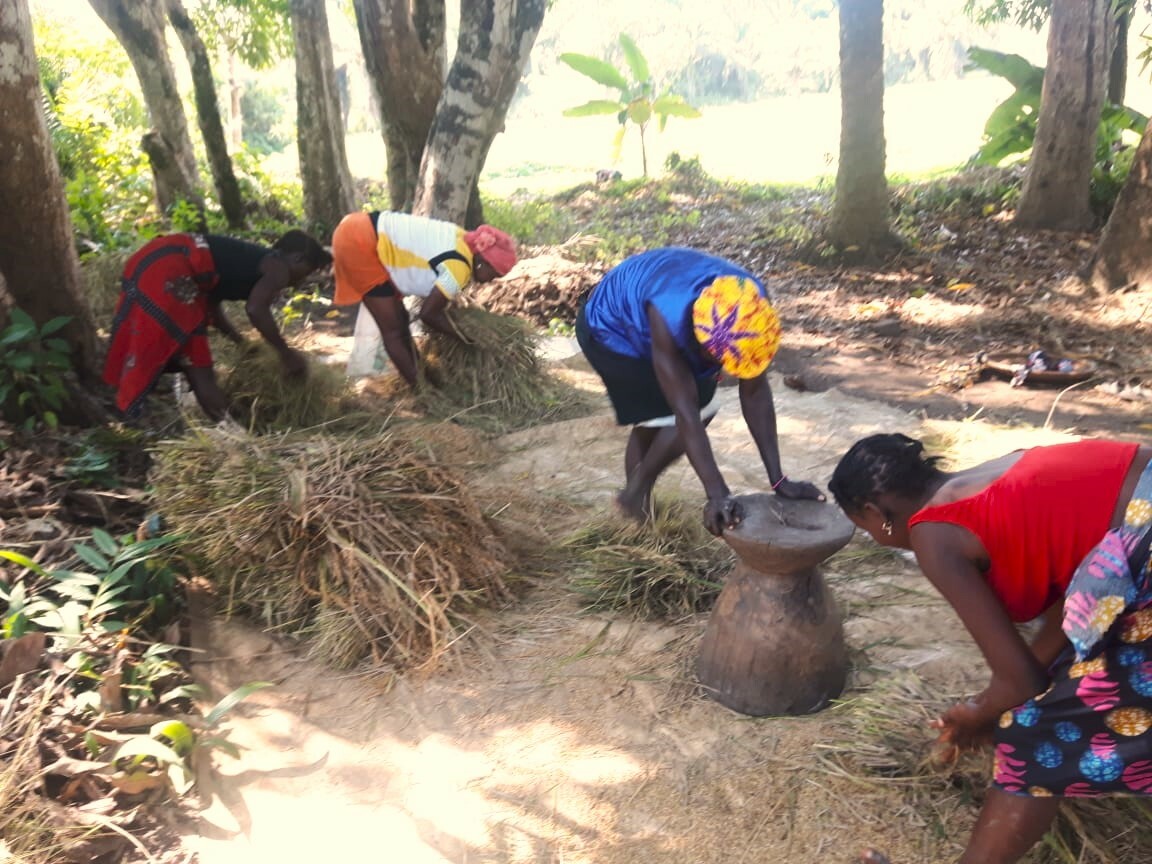
During the day of shadowing, I learned that the company owned numerous orchards. The orchards produced fruit, and growers were in charge of the cultivation and running of the orchards, and for this, they were paid an allowance. The fruit scheme was also the company's way of introducing agricultural skills to the local community.
Blue Bird, Inc. started this model because agriculture is more prevalent in rural areas, and there are very few reliable sources of employment for rural residents other than al enterprises. This experience confirmed my belief in the ability of rural agricultural enterprise to minimize youth unemployment in Sierra Leone.
Upon returning home, I discovered that the provinces that have the highest number of rural communities also account for a sizable proportion of the country's unemployed but vibrant youth. As a result, the initial focus for my project plans was on the rural areas of Port Loko District, the most populous provincial district in Sierra Leone.
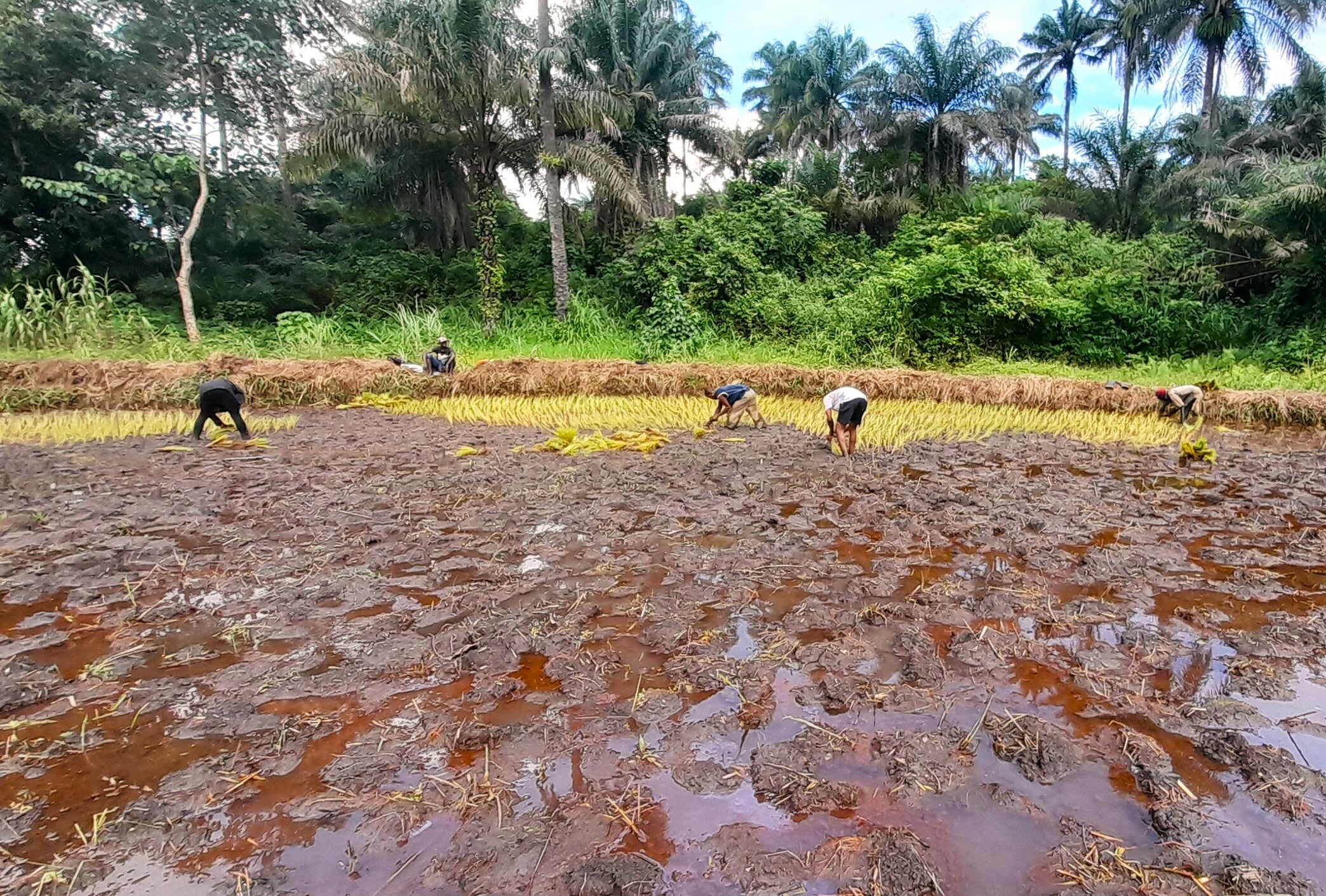
To implement this project, I applied for a YES Alumni Grant with a team of three other YES alumni and two non-alumni volunteers. We received the funding, and our project was implemented from July 2022 to February 2023. It engaged 40 youth beneficiaries from Marunie, Masondo, and Maconteh villages. Participants were divided into four groups of ten, with each group cultivating a six-acre plot of land for rice and pepper production.
We launched the project with a three-day Agripreneurship Conference. Facilitators from the Ministry of Agriculture, the Network for Youth and Children in Advocacy, and the project team educated participants on agribusiness during the conference.
The project was divided into several phases. During the land clearing phase, participants prepared the land by cutting away vegetation and slowing the growth of small trees. During the nursing phase, each group was given rice and pepper seeds to plant.
After the crops grew, it was time for harvest. In two groups, participants pinched off the peppers for drying and cut, cleaned, and bagged the rice.
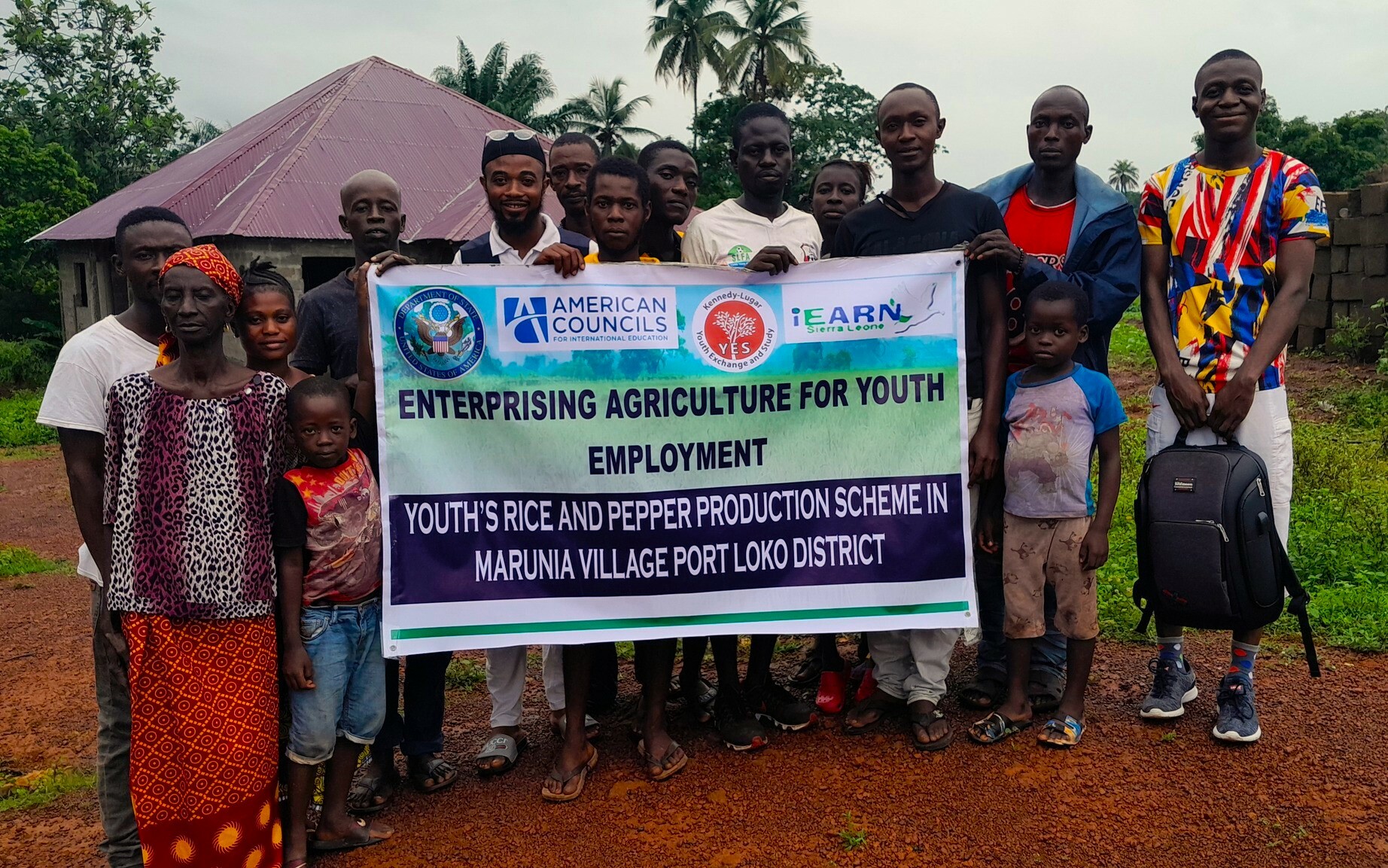
Two participants were interviewed by a local radio station, and they were asked about the project’s impact on their lives. One participant noted, “ The Agripreneurship Conference was a blessing to me. I never knew that partnership with small businesses and stores to sell our produce after harvest could serve as an effective business strategy, but it has proven effective for me thanks to the knowledge shared by the organizers of this conference.”
Thank you to the U.S. Department of State's Bureau of Educational and Cultural Affairs (ECA) and the YES program for making this project a reality.


